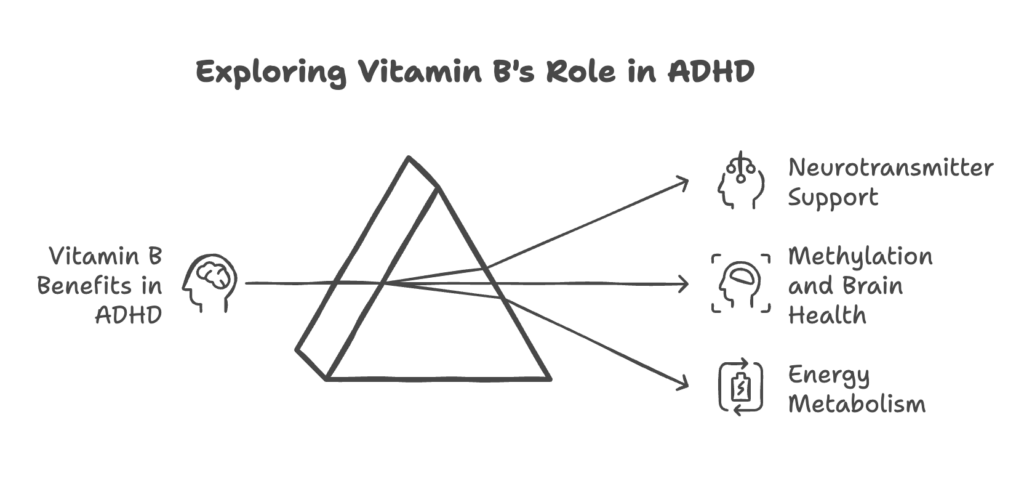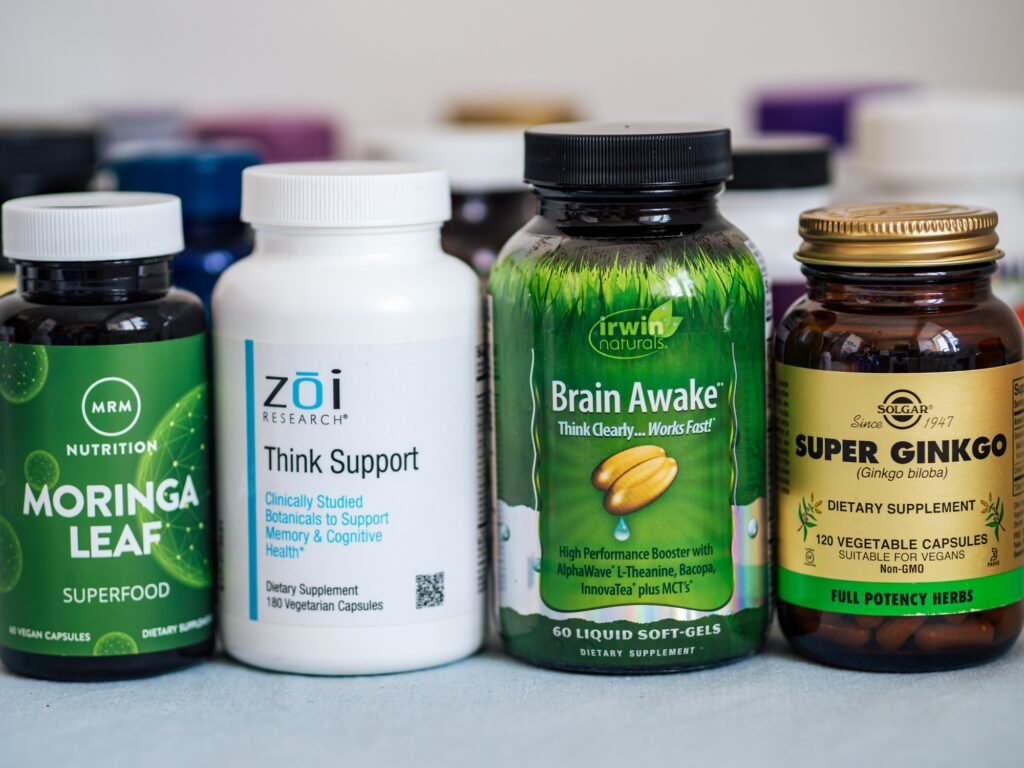Does vitamin B help ADHD? In short, yes, but with caveats. Vitamin B can support brain health and alleviate some ADHD-related challenges, particularly when there’s a deficiency. However, it’s not a standalone treatment. The key lies in understanding its role in brain function and how it complements a holistic approach to ADHD.
Vitamin B and the ADHD Brain: What’s the Connection?
Vitamin B is actually a group of essential nutrients that play crucial roles in brain health, including dopamine production, energy metabolism, and nervous system function. These factors directly relate to ADHD symptoms like inattention, impulsivity, and executive dysfunction. Here’s a breakdown of the most relevant B vitamins:
- Vitamin B6 (Pyridoxine): Supports the synthesis of neurotransmitters like dopamine and serotonin. A deficiency in B6 may exacerbate ADHD symptoms.
- Vitamin B9 (Folate): Crucial for brain development and mental clarity. Studies have linked folate deficiency to mood disorders, which often co-occur with ADHD.
- Vitamin B12 (Cobalamin): Vital for maintaining nerve health and energy levels. Low levels of B12 can mimic ADHD-like symptoms, such as brain fog and fatigue.
You might want to explore more in this research: Vitamin levels in adults with ADHD
The Research: What Does Science Say?
While research on vitamin B and ADHD is still evolving, several studies suggest its potential benefits:
- Neurotransmitter Support: Vitamin B6 is directly involved in dopamine production, which is a critical factor in ADHD. Studies have shown that combining B6 with magnesium may reduce hyperactivity and improve focus in children with ADHD.
- Methylation and Brain Health: Folate and B12 play roles in a process called methylation, which affects DNA repair, neurotransmitter function, and overall brain health. Impaired methylation pathways have been observed in individuals with ADHD.
- Energy Metabolism: Vitamin B12 and other B vitamins help convert food into energy, which can reduce ADHD-related fatigue and improve mental clarity.
Source: https://www.sciencedirect.com/science/article/abs/pii/S0278584613002935

Practical Applications: Should You Supplement?
If you’re considering vitamin B as part of your ADHD management plan, here are some steps to take:
- Check for Deficiencies: Start with a blood test to determine if you’re deficient in B vitamins. Addressing a deficiency can lead to noticeable improvements in focus, mood, and energy.
- Choose Quality Supplements: Look for bioavailable forms, such as methylcobalamin for B12 or methylfolate for B9. These are easier for the body to absorb and use.
- Incorporate B-Rich Foods: Whole foods like leafy greens, eggs, meat, fish, and fortified cereals are excellent sources of B vitamins.
- Don’t Ditch Medication: While vitamin B can help, it’s not a substitute for ADHD medication. Think of it as a complementary tool rather than a replacement.
A Balanced Approach to ADHD Nutrition
For me, adding vitamin B-rich foods and supplements helped stabilize my energy and reduce moments of overwhelming brain fog. However, I found that the real benefits came when I paired it with other strategies: regular exercise, structured routines, and medication. ADHD is multifaceted, and so is its management.
Final Thoughts: Is Vitamin B the Missing Piece?
Vitamin B can be a valuable ally in managing ADHD symptoms, especially when used to correct deficiencies. While it’s not a miracle cure, its role in neurotransmitter production, energy metabolism, and brain health makes it worth exploring. For anyone navigating the complexities of ADHD, addressing your nutritional needs is one more step toward feeling more focused, balanced, and in control.









